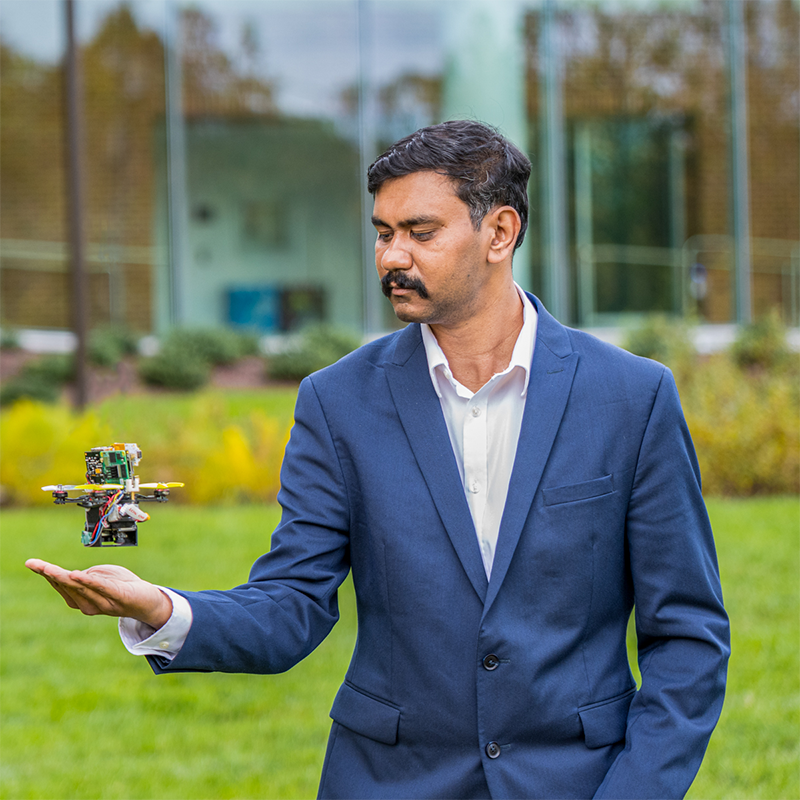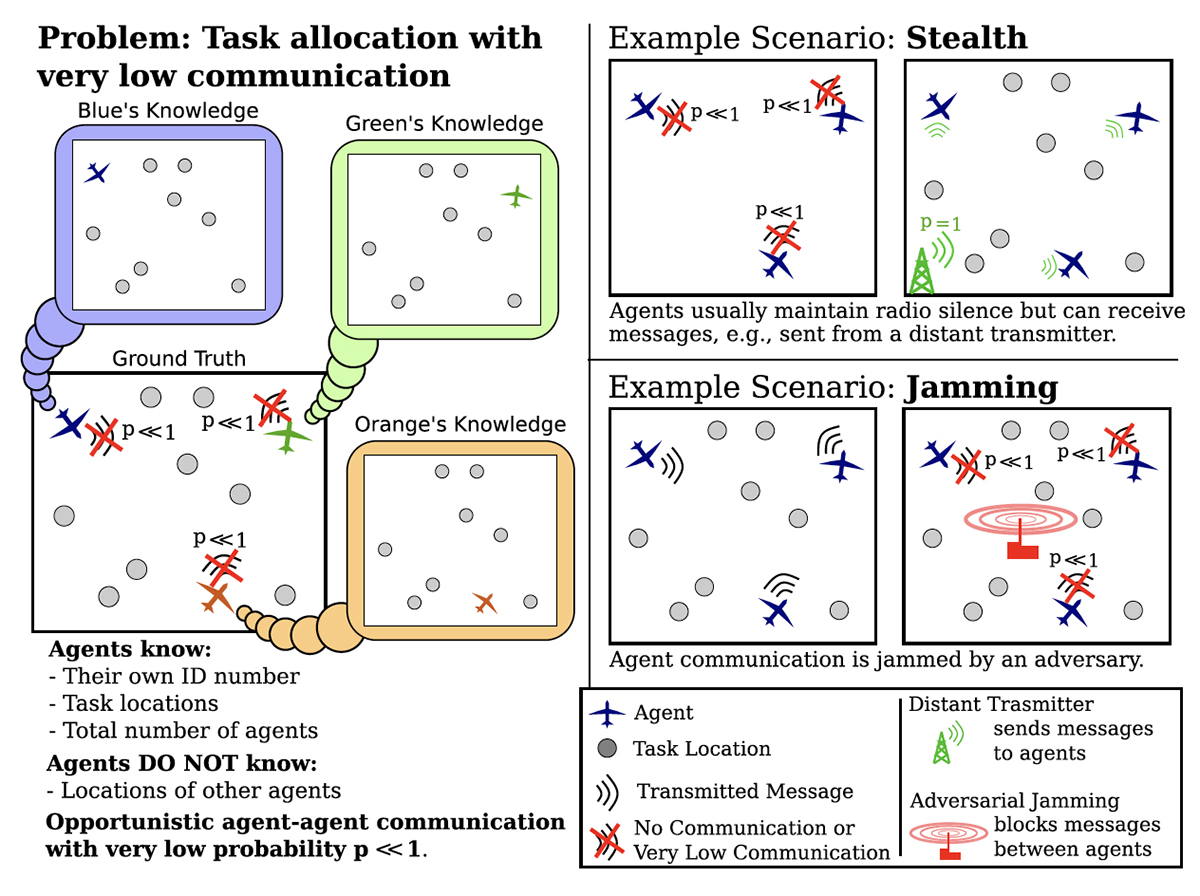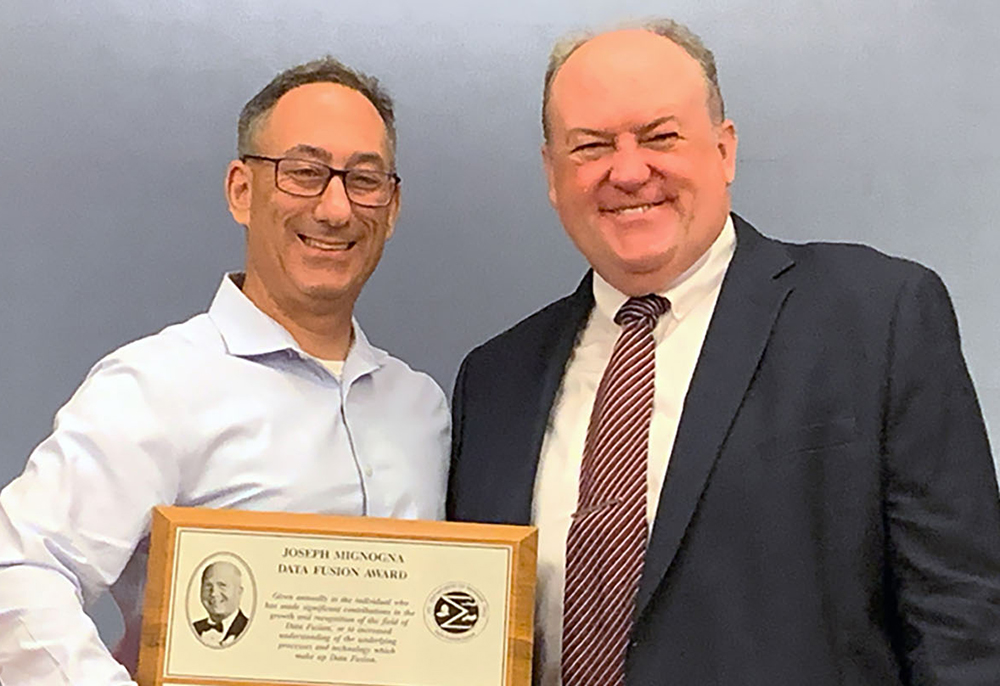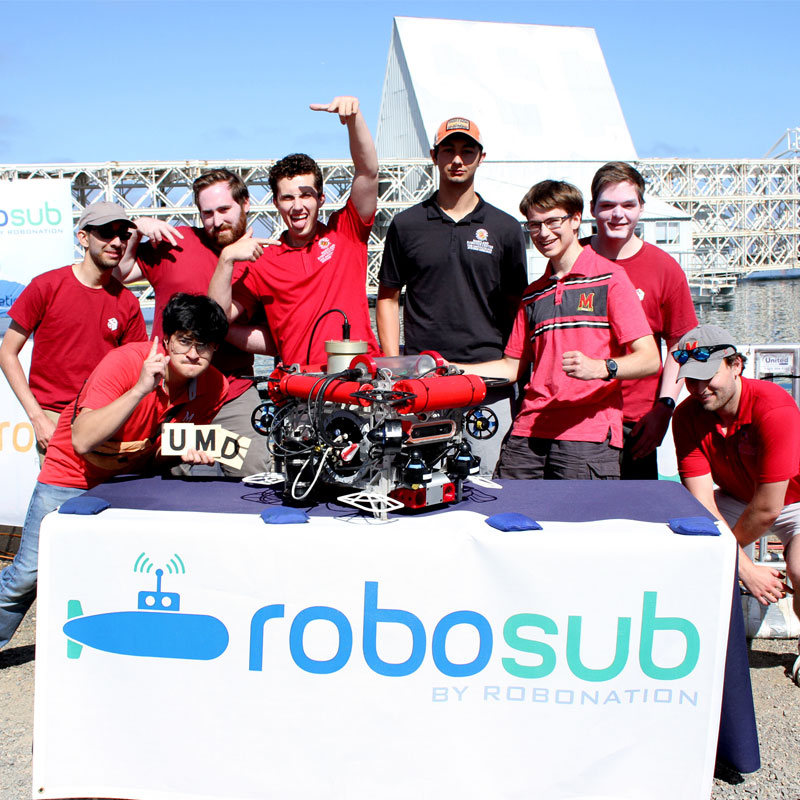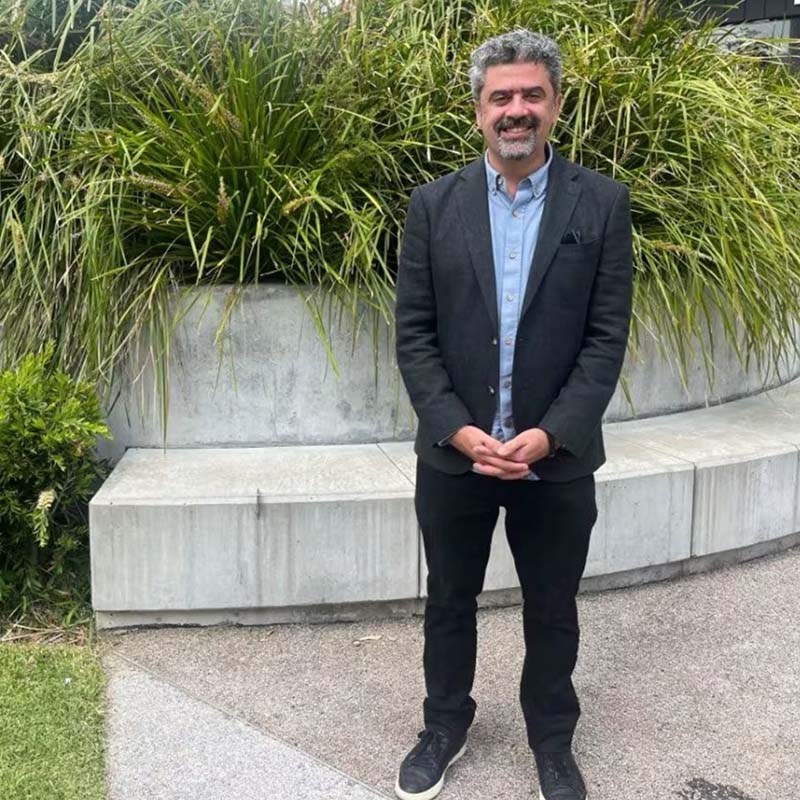News Story
Nitin Sanket wins Drones 2021 Ph.D. Thesis Award
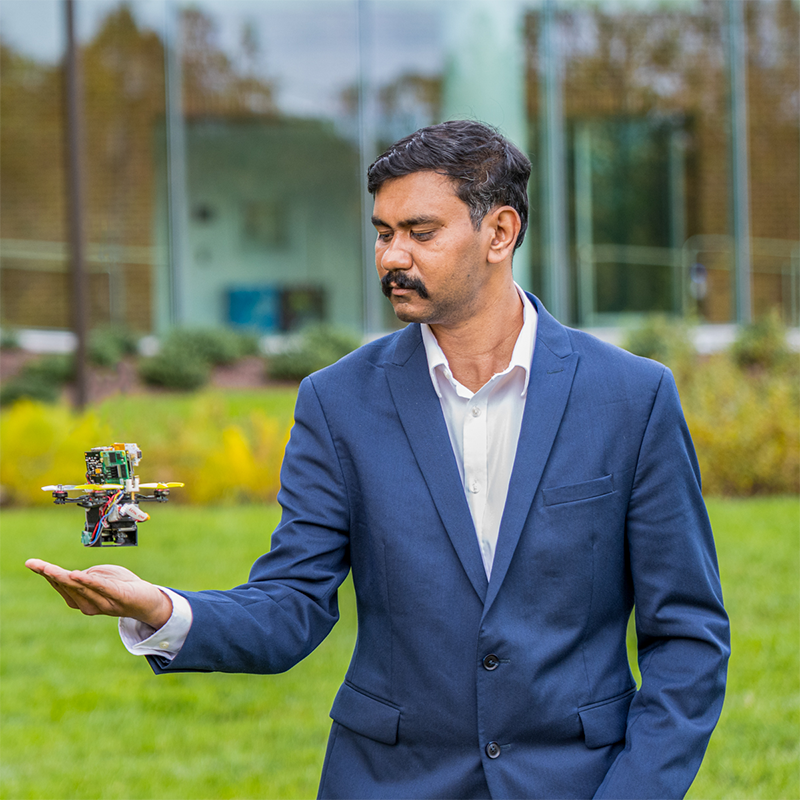
Nitin J. Sanket (CS Ph.D. 2021), a postdoctoral researcher in Yiannis Aloimonos’ Perception and Robotics Group, was recently honored with the Drones 2021 Ph.D. Thesis Award for his research involving autonomous aerial vehicles.
The annual award recognizes a doctoral thesis that shows great potential and aligns with the scientific mission of Drones, an international open-access journal focused on the design and application of unmanned aerial vehicles, unmanned aircraft systems and remotely piloted aircraft systems.
In 2021, Sanket received the Computer Science Department’s Larry S. Davis Doctoral Dissertation Award for his thesis, “Active Vision Based Embodied-AI Design for Nano-UAV Autonomy.” This work introduces concepts for developing a novel framework for algorithmic sensorimotor design of multirotor vehicles. In particular, he showcases four methods that achieve activeness on an aerial robot.
His thesis also introduced the RoboBeeHive, a self-navigating aerial drone designed to pollinate flowers on a farm. The drone “hive” houses several much smaller drones and then releases them to pollinate flowers and crops—just like bees. The project was featured in a Voice of America video in 2021.
The award recognizes outstanding dissertations that convey excellence in technical depth, significance, potential impact and presentation quality.
“In my view, Nitin’s thesis is among the best that have come out of my lab in the last 15 years,” says his former advisor, ISR-affiliated Professor Yiannis Aloimonos (CS/UMIACS). “Nitin is a very independent, well-organized and highly creative leader with strong technical skills and excellent communication capabilities.”
Using on-board sensing and computation, Sanket has created a new area of research called minimalist cognition. His work—which has been applauded by aerial robotics experts—will enable abilities in robots on a scale never seen before.
“Nitin will be a leading figure in the field in five years’ time,” Aloimonos says. Sanket is adept at working with both hardware and software since he has “one foot in engineering and the other in computer science.”
As a postdoc working with Aloimonos, Sanket continues to collaborate on projects involving computer vision and autonomous robotics. Sanket also is an assistant clinical professor in the First-Year Innovation and Research Experience (FIRE) course Autonomous Unmanned Systems.
— ISR thanks Melissa Brachfeld and the University of Maryland Institute for Advanced Computer Studies (UMIACS) for this story.
Published February 22, 2022
